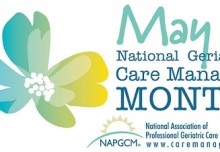 Today’s guest post comes from David Tuggle, a Central Illinois attorney with the firm of Tuggle, Schiro & Lichtenberger. They focus on Social Security Disability law and Personal Injury. In 2004, colleagues ranked him in the top 5% of attorneys practicing in those areas.
Today’s guest post comes from David Tuggle, a Central Illinois attorney with the firm of Tuggle, Schiro & Lichtenberger. They focus on Social Security Disability law and Personal Injury. In 2004, colleagues ranked him in the top 5% of attorneys practicing in those areas.
You might spend most of your life thinking about Social Security as a deduction from your paycheck, a massive government program and a retirement income supplement. When you face the challenges of arranging senior care for a family member, however, you should know there is much more to it. The Social Security Administration (SSA) has two distinct programs designed to help people stay afloat economically when they have disabilities that prevent them from working. Those are the Social Security Disability Insurance Program (SSD) and the Supplemental Security Income Program (SSI).
It’s understandable if navigating these programs feels overwhelming. Social Security, after all, is a vexingly large and complex system. The SSA reported granting $883 billion in benefits to 60 million Americans in 2015. But to bring you clarity on what might help a family member with disabilities, let’s break down the differences between the SSD and SSI components of Social Security.
Social Security Disability
The SSA provides relief to people knocked out of the workforce by the onset of disabilities through its Social Security Disability program. The crucial distinction here is that SSD is for people who have worked and paid into the Social Security trust fund. Having those paycheck deductions means you’ve paid for this insurance. You qualify based on how long you worked and paid into the system. The required length of work varies with your age. You also have to show that your medical condition will last at least a year, or that it will lead to your death.
In 2015, the SSA counted 9 million beneficiaries in the program. It also covered 2 million dependents of people unable to work because of disabilities. In total it spent more than $11 billion. The average monthly payment was $1,166. It might not sound like a lot of live on, but it can provide incredible reassurance to someone who can’t work. And that’s a situation the SSA warns many of us could face. In its informational materials, the SSA says, “Disability is something most people don’t like to think about. But the chances that you’ll become disabled probably are greater than you realize.”
The agency projects more than a quarter of current 20-year-olds will experience disabilities by the time they turn 67. And a wide majority of the private sector workforce – 67 percent – has no other long-term disability insurance.
Supplemental Security Income Program
The SSI program, meanwhile, is designed for people with low income and few resources or possessions, so it’s not tied to work history. It includes several guidelines to determine if your income and assets are small enough to qualify. The federal government uses general tax revenues – not those Social Security paycheck deductions – to fund it. SSI provides monthly payments to people with disabilities, people who are blind and those who are 65 or older. It pays a set monthly amount, which currently stands at $733 for an individual and $1,100 for a married couple. The total cost is estimated to be almost $60 billion a year for 8.2 million recipients. Many states also provide supplemental benefits. Those amounts vary by state.
Finding your way through the SSA system
If you are navigating these programs, it can be daunting. With SSD, for example, most people get denied when they first apply. The SSA has a four-step appeals process that can lead to better results, but it’s not unusual to face months-long waits. If you’re working through this process for yourself or a loved one, having an expert who knows the system can ease your efforts. And along the way, you will learn a lot about how Social Security is much more than a national retirement plan.
Charlotte Bishop is a Geriatric Care Manager and founder of Creative Care Management, certified professionals who are geriatric advocates, resources, counselors and friends to older adults and their families in metropolitan Chicago. Please email your questions to info@creativecaremanagement.com.






